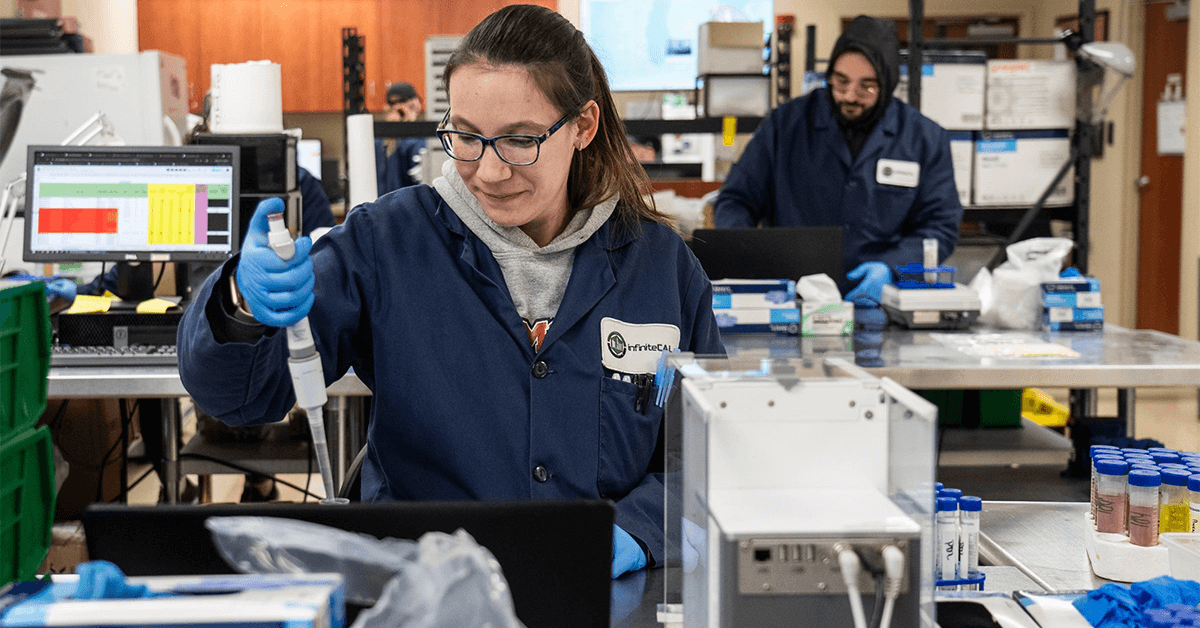Questionable Substances Detected in Michigan's Cannabis Market

In recent findings by a Michigan-based cannabis testing laboratory, alarming concerns have been raised about the safety and transparency of cannabis oil used in vape pens and edibles. Josh Swider, CEO and co-founder of Infinite Chemical Analysis Lab, reported that more than a third of the tested products contained harmful substances not disclosed by the manufacturers. These include diluting agents like MCT oil, synthetically altered cannabis oils, and prohibited pesticides.
Swider, whose company operates labs in both Jackson, Michigan, and San Diego, California, emphasized the severity of these findings. He highlighted that unsuspecting consumers are likely unaware they are inhaling or ingesting products that may not be as pure or safe as claimed. Such transparency issues are concerning, particularly when the substances involved include synthetically converted THC oil, which is the psychoactive component in cannabis responsible for its high effects.
The impetus for these tests originated from a Michigan group dedicated to cannabis safety, which remains unnamed. They commissioned Swider's lab to develop specific tests to detect these substances, revealing significant issues with product purity and labeling in the industry. The presence of MCT oil, a common carrier oil derived from coconut oil, was notably contentious. While generally recognized as safe for food, its inhalation poses potential health risks. This has led to its ban in inhalable cannabis products in several states, including Colorado, especially following the outbreak of vaping-related lung diseases in 2019.
The synthetic conversion of CBD to THC, another process detected in the tests, is akin to pharmaceutical manufacturing and remains controversial. While not explicitly labeled as unsafe, the lack of definitive safety data makes it a risky inclusion in consumer products, according to Swider.

Testing Beyond Standard Regulations
The testing of these substances, especially MCT oil and converted THC oil, is not typically covered by Michigan's current cannabis testing regulations. This gap in the regulatory framework means that potentially unsafe practices could go undetected, posing a risk to consumers. Swider shared these findings to not only raise public awareness but also to prompt a reevaluation of what safety standards should entail in the burgeoning industry.
Vape pens, a popular method for consuming cannabis due to their convenience and discretion, are at the center of this issue. Since Michigan legalized recreational cannabis in December 2019, vape pens have generated significant sales, with consumers spending over $54 million on vape cartridges and $26 million on edibles. However, this popularity comes with increased scrutiny, particularly after the state's health crisis linked to illicit vape products in 2019. This crisis led to a temporary halt and retesting of all marijuana vape products in the state to ensure safety from contaminants like Vitamin E acetate—a common additive in vape oils that, while safe to ingest or apply topically, can impair lung function when inhaled.
Similar concerns apply to MCT oil, another seemingly benign substance when used in food but potentially harmful when aerosolized and inhaled. Dr. Adie Rae, a cannabis researcher, likens inhaling MCT oil to spraying cooking oil directly into the lungs—a practice that can lead to severe respiratory issues. Despite these concerns, the transition from using Vitamin E acetate to MCT oil as a diluent in vape pens persists, underscoring the industry's uncharted territory regarding the inhalation safety of such substances.
These findings highlight the complex and often overlooked aspects of cannabis product safety and the need for more comprehensive testing and transparency in the industry.

Call for Enhanced Regulatory Oversight
As Swider delved deeper into the testing process, he observed a worrying trend in the potency levels of vape pens, which seemed to be declining. This observation prompted further investigation into what else might be contaminating these products. Collaborating with a concerned group about product safety in Michigan, he undertook the testing of 200 cannabis products purchased from recreational dispensaries across the state, encompassing nearly 60 different brands. The results were unsettling: 69 of the 200 samples tested positive for either MCT oil, conversion oil, or pesticides.
These findings underscore the broader implications for consumer safety and the integrity of the cannabis market in Michigan. Swider's approach, which he describes as just the "first stop on the train," suggests that more discoveries are likely as testing becomes more rigorous and widespread. The presence of these substances raises significant concerns, not only because they dilute the THC content, thereby reducing the product's potency, but also because they introduce potential health risks to consumers.
In response to these alarming findings, there is a call for a more robust regulatory approach. While private labs like Swider's play a crucial role in identifying contaminants and ensuring product safety, there is a growing need for state-run testing facilities to take a more active role in enforcement. This would not only standardize safety protocols but also help in safeguarding public health.
Robin Schneider, executive director of the Michigan Cannabis Industry Association, acknowledges the importance of these new testing methodologies. She emphasizes that such advancements in testing are crucial for protecting both consumers and legitimate businesses within the state. Meanwhile, the Cannabis Regulatory Agency (CRA) has been alerted to these findings, prompting them to review the use of unapproved ingredients in cannabis products. This review could lead to investigations and sanctions against non-compliant producers.
The conversation around cannabis testing and safety is evolving. With Michigan's cannabis market continuing to grow, both in complexity and scale, the state recognizes the urgent need for stringent oversight to prevent similar issues from recurring. This includes proposed regulatory changes to explicitly prohibit the conversion of CBD to THC, reflecting a proactive stance towards maintaining consumer trust and industry standards.
The unfolding scenario in Michigan mirrors broader national concerns about the safety of regulated cannabis compared to its illicit counterparts. While regulated products are generally safer due to mandatory testing, the discovery of harmful additives like MCT and conversion oils in some products calls for increased vigilance and consumer awareness.

Future Directions and Consumer Advice
The ongoing issues with undisclosed substances in cannabis products not only raise significant health concerns but also pose a challenge to the credibility and integrity of the regulated cannabis industry. To combat these issues, Michigan is considering the establishment of a state-run testing lab, expected to open by the end of the year. This move, as highlighted by David Harns, a spokesperson for the CRA, signifies a shift towards more stringent enforcement and oversight, aiming to bolster consumer safety and industry standards.
Swider's proactive disclosure of these test results, however, does not come without risks. By bringing these issues to light, he acknowledges the potential backlash from within the industry, including the possibility of losing clients who may be implicated by the findings. Despite these challenges, Swider maintains that his commitment is to public safety, underscoring a dedication that goes beyond financial incentives.
The recent discovery of harmful additives in some Michigan cannabis products reflects a broader issue that has been seen in other states as well. For instance, Missouri, following its recent legalization of recreational marijuana, had to issue a massive recall of products predominantly made from converted oil. This scenario underscores the necessity of vigilant, comprehensive testing and regulatory frameworks that can adapt to emerging challenges within the cannabis industry.
Experts like Dr. Adie Rae advocate for cautious consumer behavior, particularly highlighting the risks associated with newer, less studied additives like MCT oil. She recommends opting for products like solventless hash cartridge pens, which are less likely to contain harmful adulterants. Rae emphasizes that while regulated cannabis is generally safer than products from the illicit market, the dependence on thorough and transparent testing is crucial for ensuring safety.
This series of events in Michigan's cannabis industry serves as a critical reminder of the ongoing need for transparency, rigorous testing, and proactive regulatory measures. As the industry continues to evolve, these elements will be vital in maintaining consumer trust and ensuring that the benefits of legalization are not overshadowed by preventable risks.
Share this article:
Spotted a typo, grammatical error, or a factual inaccuracy? Let us know - we're committed to correcting errors swiftly and accurately!








 Helpful Links
Helpful Links